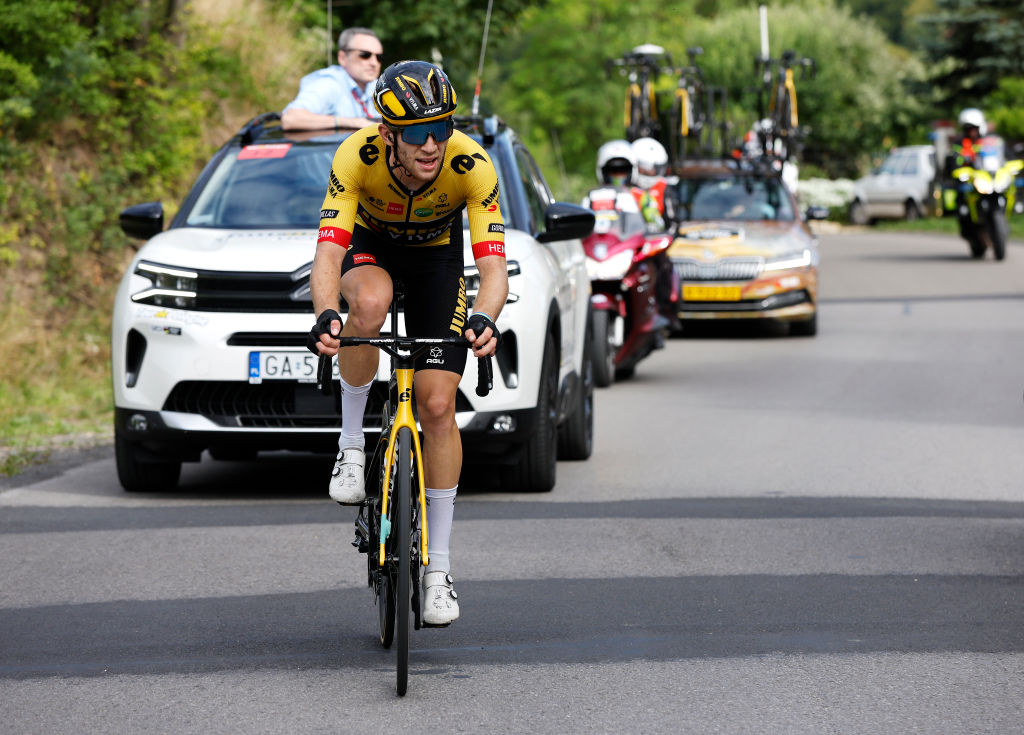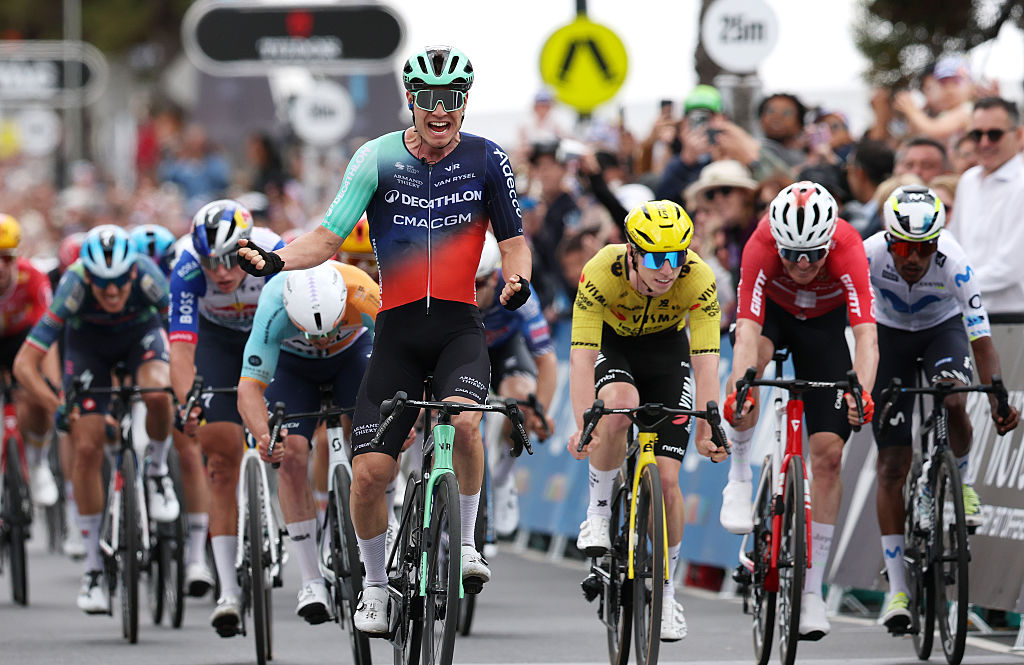German authorities investigate Hessmann after positive doping control
Inquiry included search of Jumbo-Visma rider's home, seizure of data devices

German authorities have opened an investigation into Jumbo-Visma rider Michael Hessmann after the 22-year-old tested positive for a banned diuretic on June 14, 2023.
According to a report by Dutch television station NOS, the investigation included a search of Hessmann's home in the Freiburg region, where state police found no doping substances but seized data storage devices - most likely computers and/or cell phones.
Jumbo-Visma suspended Hessmann after learning of his positive test and said they were aware of a criminal investigation. According to NOS, a spokesman explained: "On August 16, Hessmann called us after the police raided his home. Shortly afterwards, we posted what we know about the matter on X [formerly Twitter]. We do not know any more than we did then and are awaiting the outcome. Neither the German judiciary nor the German doping authority has contacted us for information or questions."
According to the German prosecutors, the investigation is solely focused on Hessmann.
"Whether this will lead to a criminal prosecution is still open and depends on the results of the investigation. The suspect will be heard before a final judgment follows. It is up to him to prove his innocence."
German cycling was hit hard by doping scandals from the days of the T-Mobile team with riders such as Rolf Aldag, Udo Bölts, Patrik Sinkewitz and Erik Zabel admitting to doping. Jan Ullrich, winner of the 1997 Tour de France, was sanctioned for his involvement in Operacion Puerto.
The scourge put a damper on enthusiasm about cycling in Germany, with broadcasters threatening to pull Tour de France coverage for several years before finally coming through on the promise in 2011.
The latest race content, interviews, features, reviews and expert buying guides, direct to your inbox!
Riders like Marcel Kittel and John Degenkolb represented a promising shift for the country, with the former supporting a new law that made doping a criminal offence in Germany in 2015.
Athletes who are caught are technically subject to a maximum prison sentence of three years and a fine, but the law has not led to any incarceration of German athletes.
Hessmann is also subject to a disciplinary proceeding by the German anti-doping authorities, who, under obligation, shared the positive doping tests with the judiciary, NOS confirmed.
Jumbo-Visma sports director Merijn Zeeman said the team would support Hessmann after learning of his case, stating last week, "As a human being, he deserves our support. Make no mistake, this is about a 22-year-old athlete whose whole world has completely collapsed. We’re also keeping an eye on that mental part."
Hessmann joined the team as a neo-pro last year and had just completed his first Grand Tour in May, where he helped Primož Roglič to the overall victory before his positive test.
"It was a big shock when I heard about the positive test," Zeeman said. "A message that we as a team and I as a coach had hoped we would never get. We want to play an exemplary role when it comes to anti-doping policy.”

Laura Weislo has been with Cyclingnews since 2006 after making a switch from a career in science. As Managing Editor, she coordinates coverage for North American events and global news. As former elite-level road racer who dabbled in cyclo-cross and track, Laura has a passion for all three disciplines. When not working she likes to go camping and explore lesser traveled roads, paths and gravel tracks. Laura specialises in covering doping, anti-doping, UCI governance and performing data analysis.
